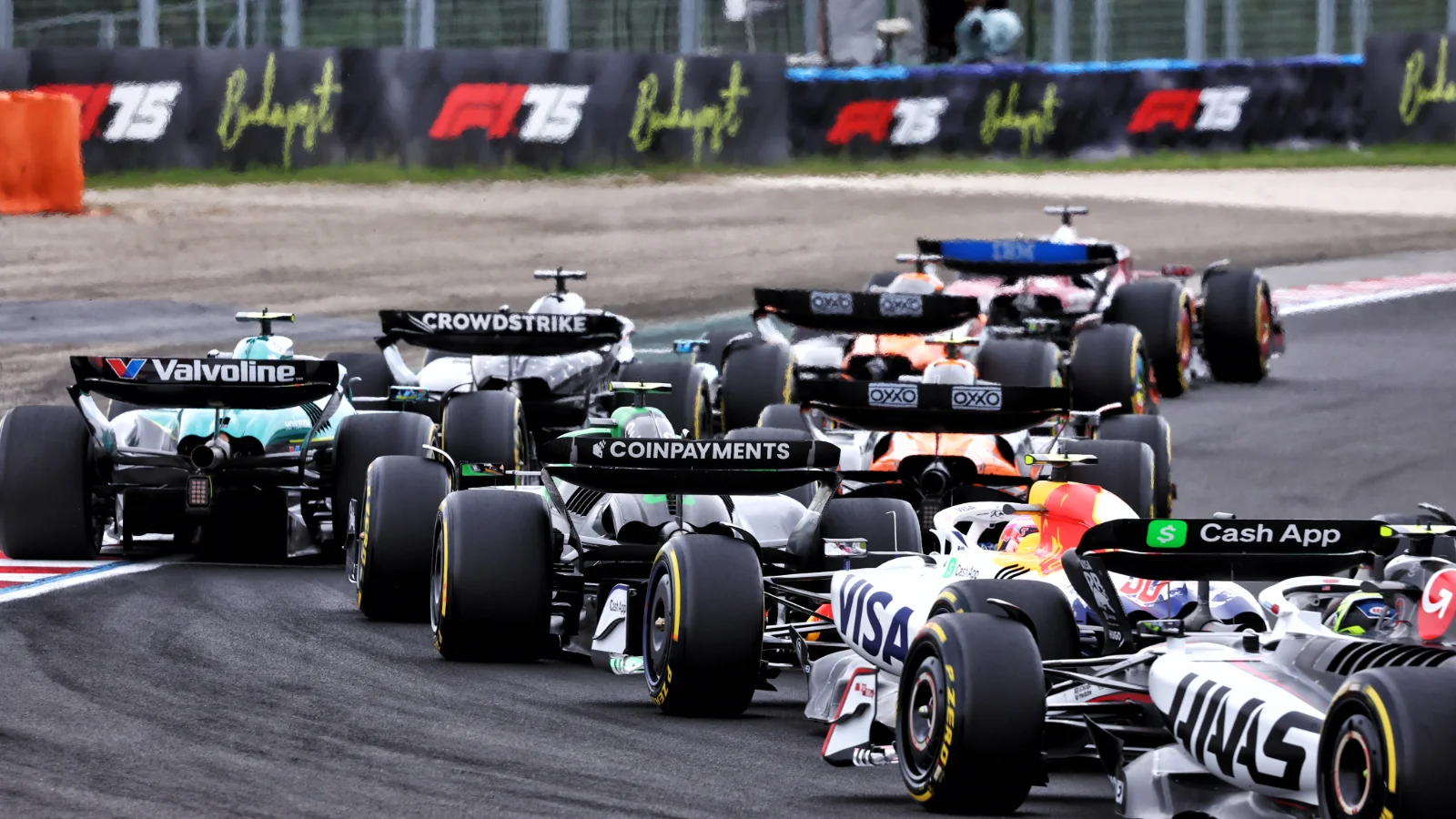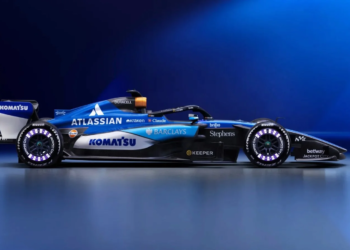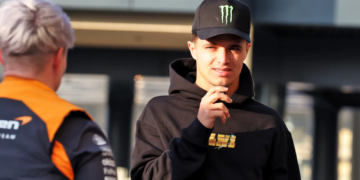By 2025, in motorsport terms, blockchain is now the new normal, not a novelty. It’s transforming fundraising for teams, fan engagement, and innovation in the sport.
From the initial concept of logos on cars, what has evolved into will ultimately become the real deal: actual utility, real fan engagement-driven decisions, and immersive digital experiences that transcend the divide of trackside and online.
From logos to utility
In earlier years, crypto entered motorsport through classic sponsorships. The big deal with Crypto.com and Formula 1, like the naming of the Miami Grand Prix, has made them known all over the world. By 2025, however, partnerships have evolved.
The situation with OKX and McLaren involves the use of data-driven storytelling, including the Senna tribute livery during the 2024 Monaco Grand Prix, which combines the world of crypto and racing traditions.
Similarly, Bybit’s former partnership with Red Bull Racing introduced the Velocity Series, NFT drops tied to live car telemetry and race moments. Though this collaboration ended in 2025, replaced by Gate.io, it set a precedent for blockchain-based fan experiences.
Crypto sponsorships are changing and it’s no longer only advertising. Now, crypto firms are intertwining digital currencies, fanbases, and in-game systems into an actual racing experience. It is less logo-related and more about genuine fan value.
DAO-powered sponsorship
An example of this trend is the 2024 collaborations with Alpine F1 of ApeCoin DAO: a community poll provided consent to all digital merchandise, community activities, and activations of promotion with tokens.
This community-driven venture, whose token holders will have a say in partnerships, promises a future in which fans might co-sponsor teams or vote on car designs or even in wildcard entries, but each is still a realm of e-motorsport speculation.
Crypto miner
While not yet prominent, the idea of crypto mining DAOs or tokenised sponsorships is discussed in Web3 communities. Such ideas, not published publicly, advance fractional ownership or fan-funded models as a method of democratising motorsport, a sport that is traditionally expensive and network-locked by design.
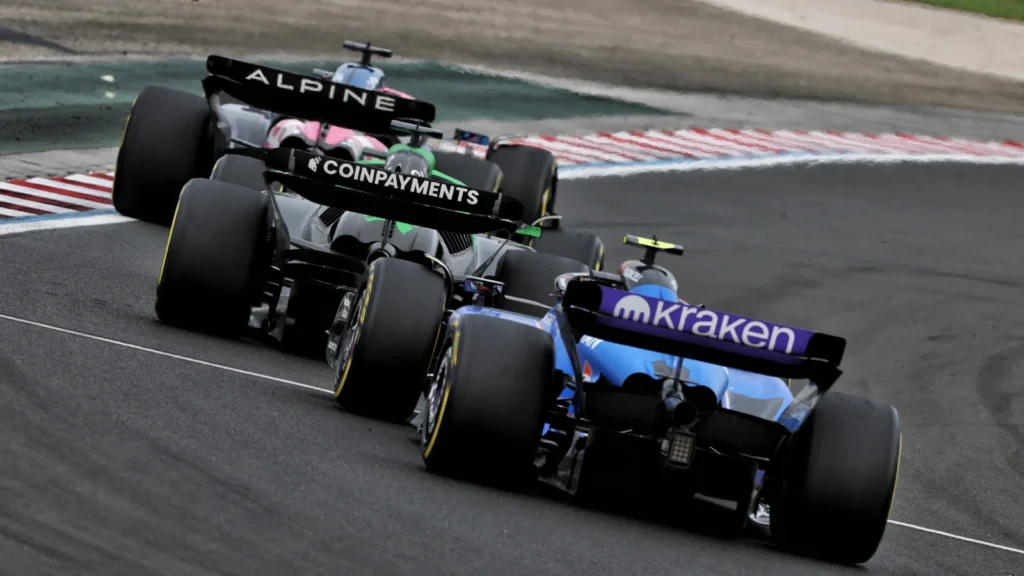
Why motorsport is a perfect fit for Web3 innovation
Crypto brands target motorsport for strategic reasons:
- International Reach: Races on five continents provide races with millions of viewers, making motorsport an excellent means to get the brand out.
- Consumer Fit: Motorsport and crypto share a lot in common in terms of innovation and performance, serving motorsport to enter the industry as a sponsor and receive a payback in terms of brand promotion
- Sponsorship Freedom: Motorsport is free of the most stringent sponsorship restrictions, with tobacco, alcohol, and betting banned in some jurisdictions, with crypto displacing them as a disruptive sponsor.
Evolving crypto sponsorship
The 2022 fall of FTX, which hit the Mercedes AMG Formula 1 Team, made teams put more care into being transparent, making plans that last, and looking at what crypto backers bring to the table. Leading sponsors like Coinbase (Aston Martin) and Kraken (Williams) now offer:
- Fan-first NFT programs, such as Kraken’s “Grid Pass” collectibles.
- Platform support infrastructure.
- Digital fan experience integrations.
Other crypto companies are promoting greener mining or having renewable energy power their mining facilities. This fits with the ambitions of Formula 1 to become carbon-neutral by 2030. However, thus far, there are no racing sponsors who are actually doing so, and now it is more of a possibility in the future rather than a current reality.
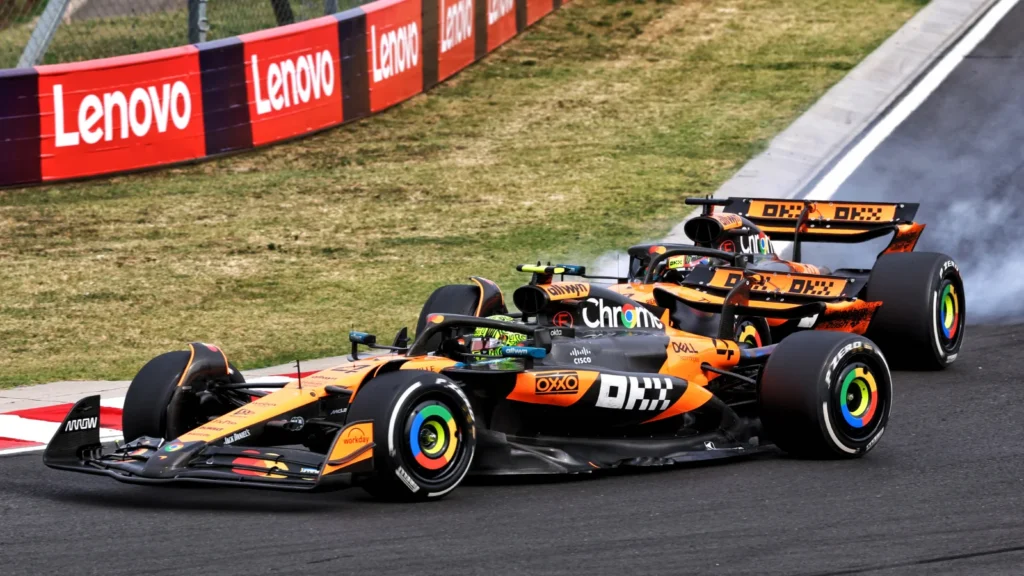
Web3 and Esports
Web3 extends beyond the track to sim-racing and esports. Platforms like Torque Drift, REVV Racing, and RaceFi offer:
- Crypto-powered tournaments
- NFT-based car ownership and upgrades
- Play-to-earn mechanics
Alpine is exploring NFT-linked fan experiences, potentially including access to telemetry data for select collectible holders, though this is not yet confirmed. With the rise of sim-racing, in the future, it is possible to imagine NFT communities sponsoring esports pilots or DAO votes deciding the result of the race; however, those are scenarios that are unlikely to happen.
What to expect by 2026
Emerging trends include:
- Tokenised Ticketing: Ensuring tickets with anti-scalping, loyalty rewards, and programmable access are provided by smart contracts, which are enforced in the Formula 1 2023 NFT ticketing trial.
- Green Mining Partnerships: Teams can investigate collaboration with crypto companies using clean power, which can be associated with the sustainability targets established by FIA, although no such agreements are present at the moment.
- DAO-Governed Teams: Smaller motorsport series could experiment with fan voting on team decisions, like liveries or strategies, but this is untested.
- Driver NFTs as Investment Tools: Initiatives tying NFT ownership to a driver’s career milestones or merchandise sales are being explored but are not yet implemented.
Conclusion
Motorsport, a domain of engineering excellence, is becoming a hub for economic experimentation. Crypto.com’s trackside branding and Alpine’s DAO-driven sponsorship with ApeCoin highlight Web3’s growing influence.
Although crypto miners may, theoretically, support the infrastructure when it comes to green energy requirements, and esports drivers may be fan-funded with NFTs in the future, the mentioned ideas remain in a distant perspective.
